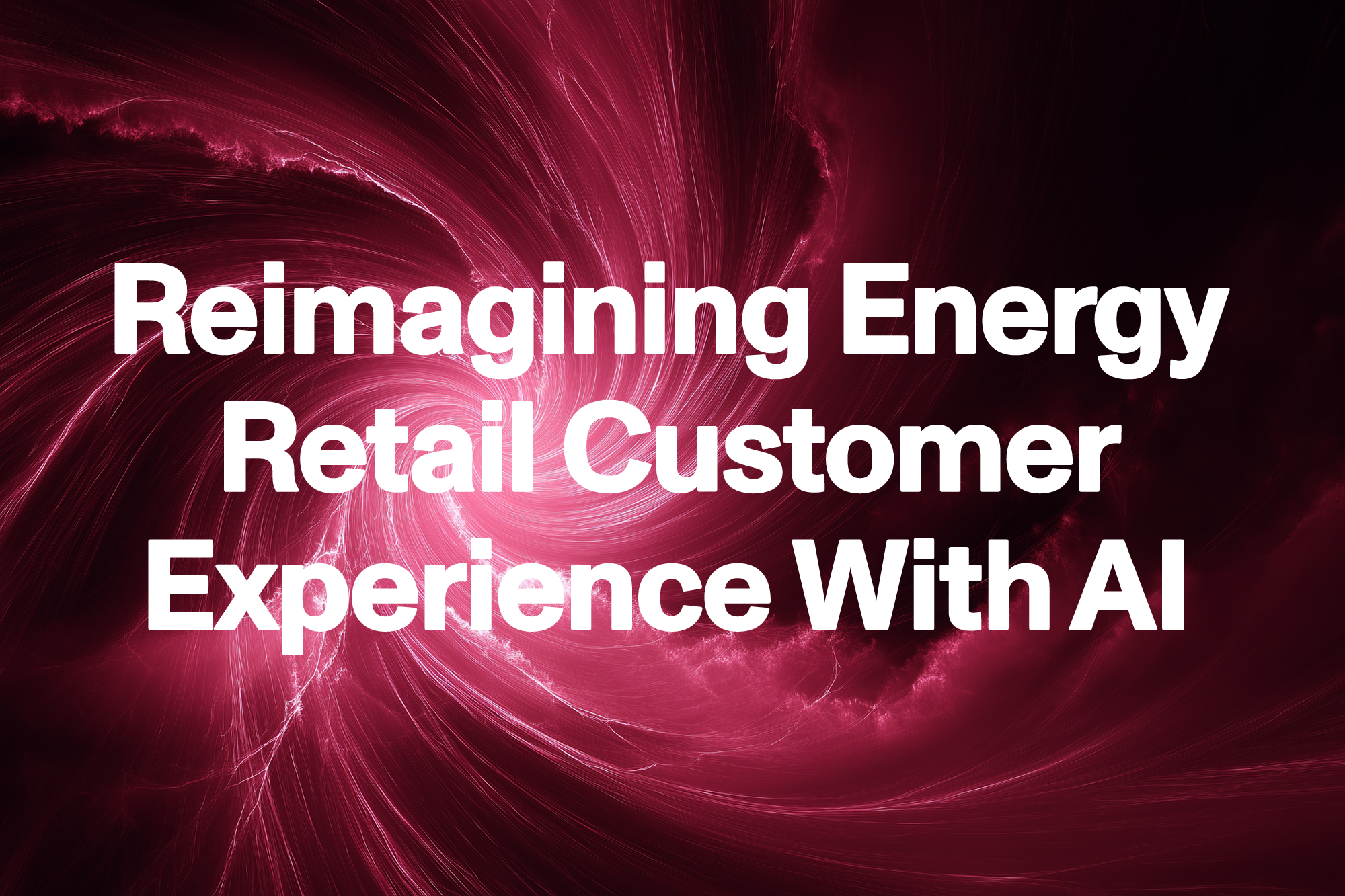


The energy retail landscape is primed for significant transformation. While innovation in AI-driven customer engagement accelerates and user expectations increase, the absence of traditional price competition and evolution in business models is weakening the energy retailer-to-customer relationship due to a lack of compelling touch points.
According to research by Customer Contact Week, AI is positioned to play a significant role in customer experience transformation over the next two years. Strategic adoption of AI for energy retailers is now essential for competitive advantage.
Let's be honest about where we stand. The energy retail sector faces some serious headwinds:
Market Stagnation: The industry is stuck in a price-fixated market that has become stagnant. Customer debt books continue to rise across the sector while legacy issues around poor service and complaint rates continue to create operational pressures. These factors are compounded by low profit margins that limit investment capacity.
Market Concentration: The market exhibits characteristics of monopolistic dominance. This is creating barriers for other market participants seeking differentiation.
The Prosumer Shift: Traditional one-way relationships are giving way to two-way prosumer models, fundamentally changing how energy companies need to think about customer engagement and the tooling needed to deliver compelling experiences.
Customer expectations have been revolutionised by their experiences with digitally native brands across finance, travel, media, and direct-to-consumer businesses. Today's energy customers expect:
Real-Time, Conversational Experiences: customers expect organisations to meet them at their preferred touchpoints, at their preferred times, with research indicating that conversational experiences are becoming the primary interface for customer journey fulfilment.
Frictionless Journeys: Organisations must deliver real-time sales and service journeys with minimal friction. This involves leveraging AI-mined data on product usage, interactions, and sentiment to inform service and support experiences.
Personalised, Customer-Controlled Experiences: Generic, one-size-fits-all engagement is dead. Customers expect personalised experience design that adapts to their individual needs and preferences.
Empathetic Engagement: Perhaps most importantly, customers want to build trusted relationships with organisations. They expect companies to recognise how they're feeling and adapt in real-time. Research shows that brands demonstrating economic empathy see higher retention rates and improved revenue.
The good news? AI offers three transformative opportunities for energy retailers ready to embrace change:
1) The Customer 360 Revolution
AI enables genuine top-of-funnel transformation by creating comprehensive customer visibility. By integrating data from CRM, meter to cash, contact centre, and other peripheral systems, suppliers can evolve their business models with a unified view across energy, assets (electric vehicles, solar installations, heat pumps), and lifestyle products (boiler care, insurance). This means offering truly relevant tariffs, services, and propositions while connecting the fragmented customer journey from discovery to installation to integration.
How? Combining graph database technologies which are perfectly suited to navigating complex and semantic data relationships, alongside Generative AI’s capabilities in data summarisation and multi-modal content creation, retailers can fundamentally enhance their customer visibility, increasing insight and driving personalised customer experiences.
2) The Engagement Engine Room
AI accelerates customer engagement by building a data-powered engine room for modern interactions. This infrastructure unlocks real-time personalisation, sentiment-based interactions, contextual engagement, and truly integrated journeys. By bringing together disparate data assets, companies can finally bridge on and offline experiences seamlessly.
How? By embedding AI into sales and service interactions, energy retailers can leverage advances in speech recognition for transcription and natural language processing such as intent detection, entity extraction, and sentiment analysis to understand transcribed text. Transformer based models facilitate evaluation of emotional states, personalising interactions, whilst LLM’s provide summarisation and contextual insights. Through the changing together of domain focussed agents, these can be combined to create compelling customer touch-points.
3) The Service Innovation Platform
AI transforms customer service into a proposition laboratory. By leveraging data-driven insights and AI workloads, companies can develop industry-specific solutions: debt management propositions that consolidate multiple data sources, customer-facing apps that solve billing queries by integrating bill, settlement, and industry data, and vulnerability interventions powered by usage data and behavioural analysis.
How? AI puts rapid prototyping and concept development tools in the hands of all users. From ‘vibe’ coding tools which create full stack applications to test concepts rapidly with end users, through AI based IDE’s such as AWS Kiro allowing full enterprise integration, to Gen AI powered coding companions such as Github Copilot, these new tools allow for rapid design and testing of customer facing propositions. In the data analysis and modelling space, tools such as Azure ML Studio Lab or Google CoLab democratise analysis through intuitive interfaces allow for more timely interrogation of data and interpretation of outputs to inform decision making.

The ultimate prize is the agentic journey – orchestrating the entire customer experience, removing friction, and guiding customers through complex decisions in a manner tailored to their specific needs and circumstances. Perfect isn't the goal; achieving 80-90% optimisation would represent transformative progress for the industry.
Success requires building the right technology foundation. This means investing in data unification, either via augmenting an off the shelf Customer Data Platform (CDP) with AI tooling, or via a bespoke solution build that integrates unified customer data with AI. Recognising the need for customer data unification, these platforms have evolved from a niche category, often the preserve of marketing teams, to become a key enabler of the step change in customer engagement.
These foundations also extend beyond technology. Customer engagement must become an organisational imperative - not just a technology one. This is especially true where retailers are aiming to integrate on and offline journeys such as asset installs or surveys with a single customer experience. To be successful in this endeavour requires joined up technology and organisational thinking beyond the customer service business.
The energy retail industry faces a strategic inflection point. Companies that embrace AI-powered customer engagement transformation have the opportunity to thrive. Those that defer adoption risk market marginalisation as customers with agency make the switch to those providing the most engaging and tailored experiences, and the best service.
The question isn’t whether AI will redefine energy retail - it’s how soon your organisation will act. At Indicium AI, we partner with energy enterprises to turn AI ambition into reality, from customer 360 insights to agentic engagement engines.
